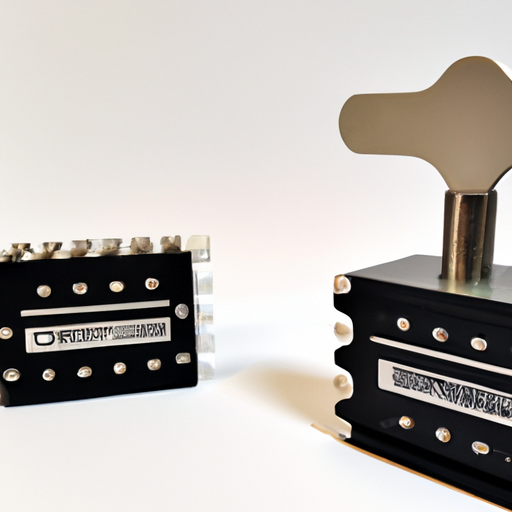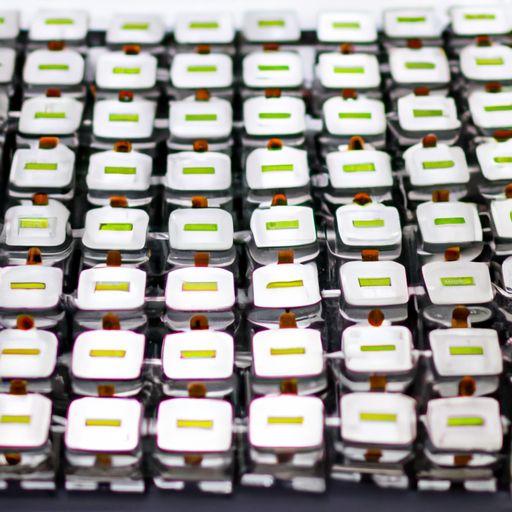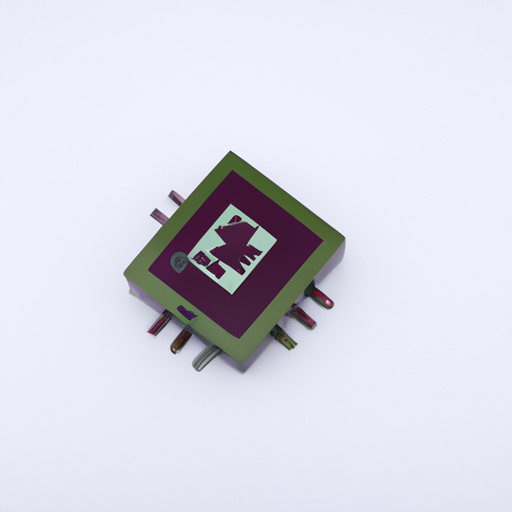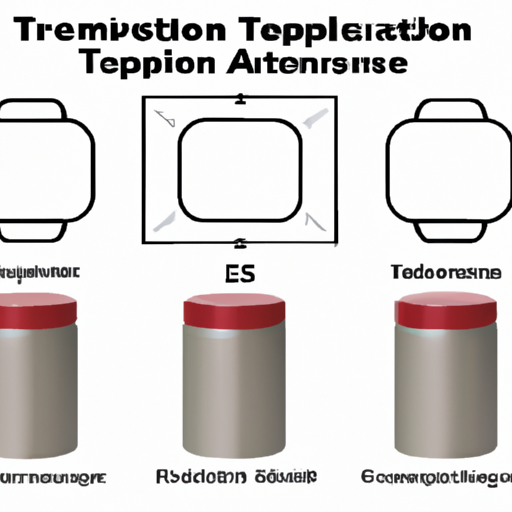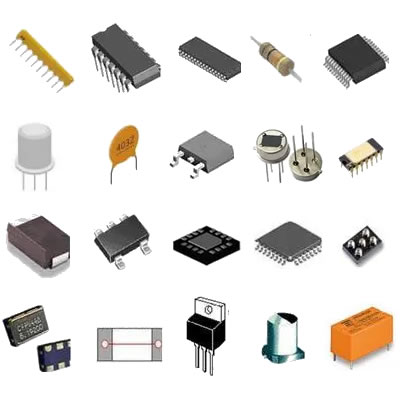What are the advantages of resistor manufacturer products?
What are the Advantages of Resistor Manufacturer Products?
I. Introduction
Resistors are fundamental components in electronic circuits, serving the crucial role of controlling the flow of electric current. By providing resistance, they help to manage voltage levels, protect sensitive components, and ensure the proper functioning of devices. The importance of quality resistors cannot be overstated, as they are integral to the performance and reliability of a wide range of applications, from consumer electronics to industrial machinery. This article will explore the advantages of resistor manufacturer products, highlighting their quality, customization options, cost-effectiveness, technical support, and environmental considerations.
II. Types of Resistors
Resistors come in various types, each designed for specific applications and performance requirements. Understanding these types can help in selecting the right resistor for a given project.
A. Fixed Resistors
1. **Carbon Composition Resistors**: These resistors are made from a mixture of carbon and a binding material. They are known for their high energy absorption and are often used in applications where high pulse loads are expected.
2. **Metal Film Resistors**: Offering better stability and accuracy than carbon composition resistors, metal film resistors are made by depositing a thin layer of metal onto a ceramic substrate. They are ideal for precision applications due to their low noise and tight tolerance.
3. **Wirewound Resistors**: Constructed by winding a metal wire around a ceramic or fiberglass core, wirewound resistors can handle high power levels and are often used in power applications.
B. Variable Resistors
1. **Potentiometers**: These adjustable resistors allow users to change resistance values manually, making them ideal for applications like volume controls in audio equipment.
2. **Rheostats**: Similar to potentiometers, rheostats are used to control current flow in a circuit. They are typically used in applications requiring high power.
C. Specialty Resistors
1. **Thermistors**: These temperature-sensitive resistors change resistance with temperature variations, making them essential in temperature sensing and control applications.
2. **Photoresistors**: Also known as light-dependent resistors (LDRs), these components change resistance based on light exposure, commonly used in light-sensing applications.
III. Quality Assurance and Reliability
A. Manufacturing Standards
Quality assurance is paramount in resistor manufacturing. Reputable manufacturers adhere to strict manufacturing standards, often holding ISO certifications that ensure consistent quality and reliability. Compliance with industry standards such as RoHS (Restriction of Hazardous Substances) and REACH (Registration, Evaluation, Authorisation, and Restriction of Chemicals) further guarantees that products are safe and environmentally friendly.
B. Testing and Quality Control
Manufacturers implement rigorous testing and quality control measures to ensure their products meet high-performance standards. In-house testing procedures may include electrical testing, thermal cycling, and long-term reliability assessments. This commitment to quality results in consistent resistance values and reduced failure rates in applications, ultimately enhancing the overall performance of electronic devices.
C. Impact on Performance
The quality of resistors directly impacts the performance of electronic circuits. High-quality resistors provide consistent resistance values, which are crucial for maintaining circuit stability. Additionally, lower failure rates lead to increased reliability, reducing the likelihood of costly repairs or replacements.
IV. Customization and Versatility
A. Tailored Solutions for Specific Applications
One of the significant advantages of working with reputable resistor manufacturers is the ability to obtain customized solutions. Manufacturers can provide tailored resistance values, unique form factors, and sizes to meet specific application requirements. This flexibility is particularly beneficial in specialized industries where standard components may not suffice.
B. Wide Range of Options
Resistor manufacturers offer a diverse range of options, including different materials and technologies. This variety allows engineers to select resistors based on specific power ratings, tolerances, and environmental conditions, ensuring optimal performance in their applications.
C. Adaptability to Emerging Technologies
As technology evolves, so do the requirements for electronic components. Resistor manufacturers are increasingly adapting their products to integrate with emerging technologies, such as IoT (Internet of Things) devices and renewable energy systems. This adaptability ensures that manufacturers can meet the demands of modern applications, providing solutions that are both innovative and effective.
V. Cost-Effectiveness
A. Economies of Scale
Reputable resistor manufacturers often benefit from economies of scale, allowing them to produce components at lower costs. Mass production techniques enable manufacturers to offer competitive pricing strategies without compromising quality. This cost-effectiveness is particularly advantageous for businesses looking to minimize expenses while maintaining high standards.
B. Long-Term Savings
Investing in quality resistors can lead to long-term savings. High-quality components typically have lower maintenance costs due to their reliability and durability. Additionally, energy-efficient resistors can contribute to reduced energy consumption, further enhancing cost savings over time.
C. Value for Money
When selecting resistors, it is essential to balance cost with performance. While cheaper components may seem appealing, they can lead to higher failure rates and increased maintenance costs in the long run. Investing in quality resistors from reputable manufacturers ensures that customers receive value for their money, resulting in better overall performance and reliability.
VI. Technical Support and Customer Service
A. Expertise and Guidance
Reputable resistor manufacturers often provide access to knowledgeable engineers who can offer expertise and guidance in selecting the right resistor for specific applications. This support is invaluable for engineers and designers who may need assistance navigating the complexities of resistor specifications and performance characteristics.
B. After-Sales Support
After-sales support is another critical advantage of working with established manufacturers. Many offer warranty and return policies, ensuring that customers have recourse in case of defects or issues. Additionally, technical troubleshooting and advice can help customers resolve problems quickly, minimizing downtime.
C. Building Long-Term Relationships
Establishing a reliable partnership with a resistor manufacturer can lead to ongoing support and collaboration. Long-term relationships foster trust and communication, allowing manufacturers to better understand their customers' needs and provide tailored solutions.
VII. Environmental Considerations
A. Sustainable Manufacturing Practices
As environmental concerns grow, many resistor manufacturers are adopting sustainable manufacturing practices. This includes using eco-friendly materials and implementing energy-efficient production processes. By prioritizing sustainability, manufacturers can contribute to a greener future while meeting the demands of environmentally conscious consumers.
B. End-of-Life Management
Responsible end-of-life management is essential in the electronics industry. Many manufacturers offer recycling programs for electronic components, ensuring that resistors and other parts are disposed of responsibly. Compliance with environmental regulations further demonstrates a commitment to sustainability.
C. Contribution to Green Technology
Resistors play a vital role in the development of energy-efficient devices and green technology. By supporting the creation of sustainable electronics, resistor manufacturers contribute to a more environmentally friendly future, aligning with global efforts to reduce carbon footprints and promote renewable energy sources.
VIII. Conclusion
In summary, the advantages of resistor manufacturer products are numerous and significant. From quality assurance and reliability to customization options and cost-effectiveness, choosing the right resistors is crucial for optimal performance in electronic applications. Additionally, the technical support and environmental considerations offered by reputable manufacturers further enhance their value. As technology continues to evolve, it is essential to consider reputable manufacturers for your electronic needs, ensuring that you invest in quality components that will stand the test of time. By prioritizing quality resistors, you can enhance the performance and reliability of your electronic devices while contributing to a more sustainable future.


